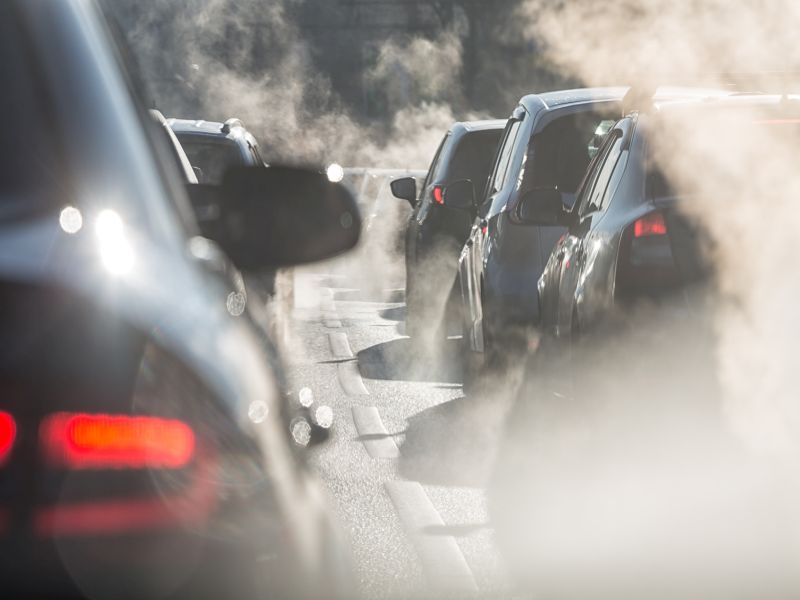Wintertime Smog Tied to Rise in Heart Procedures

FRIDAY, Aug. 23, 2019 (HealthDay News) -- Breathing in smoggy air, especially in the colder months, may be especially taxing for the heart, new research out of Europe suggests.
Polish researchers found that high levels of air pollution were tied to spikes in procedures to open blocked heart arteries. This was especially apparent in winter, when pollution levels were highest, a new study finds.
The study included nearly 16,000 people -- more than 5,600 heart patients living in six relatively unpolluted cities in Poland and more than 10,000 patients in five polluted cities.
All of the patients experienced unstable angina (chest pain) or had suffered a heart attack and undergone procedures such as angioplasty, with or without stenting, to open blocked arteries.
The researchers compared the dates of the angioplasty procedures with the air quality in each of the cities.
Specifically, the investigators looked at levels of particulate matter (PM) 10 -- tiny air pollution particles from vehicles, industries such as iron making and quarrying, wood and coal stoves, lawn mowers, bush fires and dust storms.
Not surprisingly, the annual average PM10 concentration was significantly higher in the polluted cities than in the unpolluted cities. But in all of the cities, any rise in PM10 levels was significantly associated with a greater frequency of angioplasties, said a research team led by Rafal Januszek of University Hospital, Krakow.
The hike in heart procedures was actually "higher in regions with initially cleaner air, if taking the same increment in pollution into account," Januszek said.
Outside temperatures seemed to matter, too. Heart procedure rates were significantly higher in winter in both the polluted and clean-air cities, according to the study scheduled for presentation at the upcoming European Society of Cardiology (ESC) meeting in Paris.
The seasonal difference could be "due to several factors, such as artificial heating and the resulting smog," Januszek said in an ESC news release.
The bottom line, he said, is that "more needs to be done to lower pollution levels and protect the public's health."
Experts note that findings presented at medical meetings are typically considered preliminary until published in a peer-reviewed journal.
More information
The U.S. National Heart, Lung, and Blood Institute has more on coronary angioplasty.

The news stories provided in Health News and our Health-E News Newsletter are a service of the nationally syndicated HealthDay® news and information company. Stories refer to national trends and breaking health news, and are not necessarily indicative of or always supported by our facility and providers. This information is provided for informational and educational purposes only, and is not intended to be a substitute for medical advice, diagnosis, or treatment.

